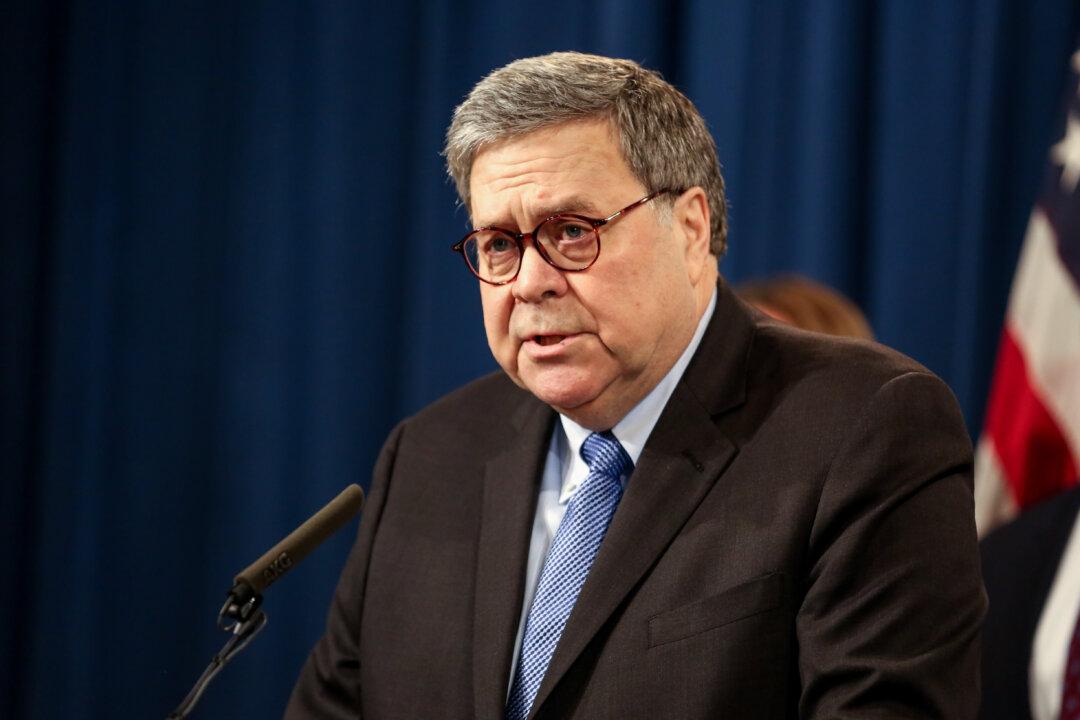Attorney General William Barr said on April 21 that the Justice Department (DOJ) might consider intervening in lawsuits against governors’ lockdown measures if states continue to extend them as COVID-19 cases subside.
Barr made the comments during a radio interview on The Hugh Hewitt show where he said that while it was necessary for states to place measures to control the spread of the CCP virus pandemic, these orders have caused “unprecedented burdens on civil liberties.”




